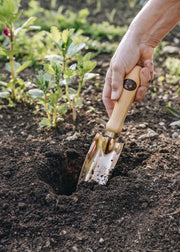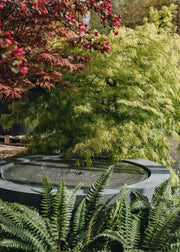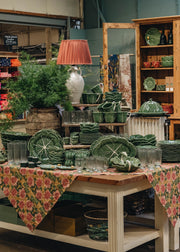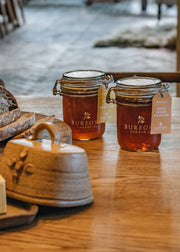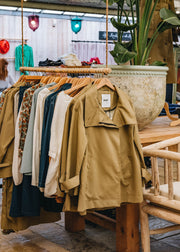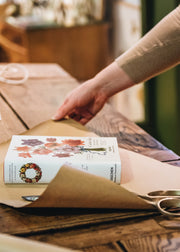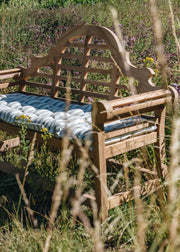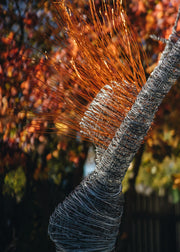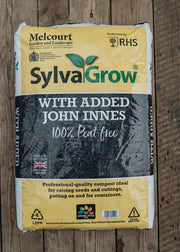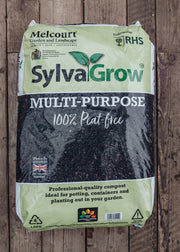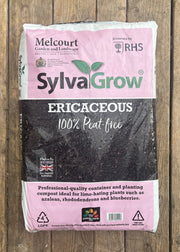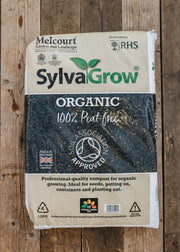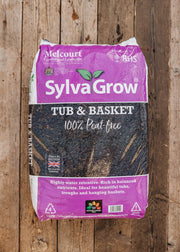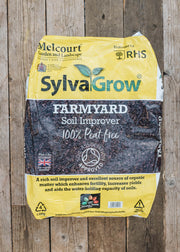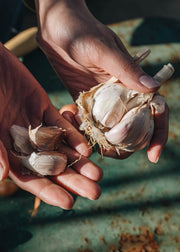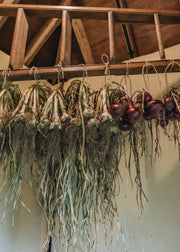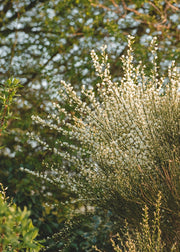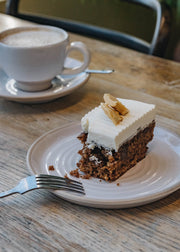Learn all about Peat-free Compost with Melcourt

In anticipation of Melcourt's visit in store on Saturday 23rd March, we caught up with Beverley to learn more about Peat-free Compost.
When growing anything in pots, from seeds to fully grown plants, using bagged compost rather than soil from the garden is far more likely to give success. Soil is a great growing medium in situ but it can contain weed seeds and diseases, can be very heavy and easily become compacted in a pot.
‘Peat-free’ describes composts that are made without any peat. In recent years it has become widely accepted that using peat is bad for the environment. When harvested it depletes unique flora and fauna and can increase the likelihood of flooding in areas that would normally have been protected due to the immense ability of natural, undisturbed peatland to soak up vast quantities of water. When harvested, peat begins to break down, releasing large quantities of carbon dioxide into the atmosphere – and this is carbon that was removed from the atmosphere many hundreds of years ago – in a similar way to the release of CO2 when fossil fuels are burned.
No. All composts are very much not the same. The creation of many new brands of peat-free compost has illustrated how different these can be in both make up and performance. Our advice is to find a brand that works well for you, such as Melcourt SylvaGrow® and get to know it. For example, some peat-free composts can look dry on the top and yet be perfectly damp underneath. So use the finger test, pushing a finger below the surface to check the moisture level, or pick the pot up to feel how heavy it is, and in this way gradually learn about how the mix you are using behaves.
At Melcourt we designed our SylvaGrow® range to be as similar in management to peat as possible, precisely to avoid gardeners having to significantly change their way of managing compost.
John Innes refers to a sterilised loam-based compost. John Innes formulae were first created at the John Innes Horticultural Institution in the 1930s. The blends used loam from stacked turves, various organic fertilisers, sand and peat. Over the intervening years the blends have been refined and nowadays include peat-free versions. But they are still based on steriliszed loam so are much heavier than loamless mixes.
There is a full description of this on the Melcourt website.
Dig in to our Melcourt Compost Collection
For growing plants organically you should ideally use a compost that is approved by one of the UK’s organic certification bodies. Melcourt’s organic products include SylvaGrow® Organic and the SylvaGrow® Planter for Organic Growing, both of which are approved by the Soil Association, the UK’s leading organic certification organisation.
Compost should always be stored in clean, cool and dry conditions and the bag should be closed so that the contents cannot dry out.
Regarding storage, fresh compost is always best and at Melcourt we advise that for best results, use compost within the season of purchase, or at least within a year of manufacture. Melcourt is one of very few companies who put the date of manufacture on the side of the pack so that consumers can check when it was made.
Always check that you are not buying old stock and that the bags haven’t been allowed to get wet.
